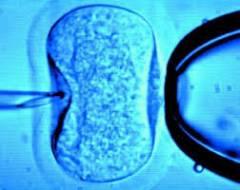“When I was small, I didn’t even know that I was a kid with special needs. How did I find out? By other people telling me that I was different from everyone else, and that this was a problem.”
– Naoki Higashida
I think there are two different sides to wanting children to be healthy in our culture. There’s these-are-my-children-and-I-want-them-to-be-healthy, which influences all sorts of decisions about diet and environment and activities and so on, because we want to give children their best shot at being physically, emotionally, socially, etc. healthy. But this side also accepts that sometimes children will get sick, sometimes they will get better and sometimes not, sometimes they will be born with a disability that will shape their life and yours, but no matter what, they are still your children.
There’s the other side, though, where wanting healthy children implies not wanting unhealthy children. This leads to things like the alarming rate at which children with chromosomal abnormalities are aborted. Various studies have found, for example, that in the UK, Europe, and the United States, around 90% of children diagnosed with Down Syndrome are aborted.

Recently, I read about an IVF clinic in Australia offering parents deemed to be “at risk” of having a child with autism an opportunity to lower the chance that this will happen. The exact cause(s) of autism is unknown. It’s complicated. There is currently no genetic test. So what are they doing? Boys are statistically more likely than girls to have autism. So they will make sure that the embryos chosen for implantation are female. Less chance that the child that grows up will have autism. Except the parents in question aren’t just the parents of the daughter who was implanted and grew up to be born: they are the mother and father of those other embryos—male or female, autistic or not—who are discarded.
Parenting a child with a disability can be a heroically difficult task. Having worked in childcare but never been a parent at all, I haven’t even scratched the surface of the surface of what life is like. Your child will face challenges that many other children won’t, and you may be facing them right alongside them, or sometimes you may be struggling at the sidelines, desperate to help but unsure how.
But it’s not just about the experience of the parents. What about the child? What will his or her life be like? Why bring a child into the world who is going to suffer, people say. Except the choice is not for these children, these people, never to exist, but for them to exist briefly and then be killed. We wouldn’t kill a born person because their genes are different or unusual, because their body or brain works differently than ours, so how is killing them when they are even younger any better?
But what will their life be like? Each experience will be unique, but consider the words of Naoki Higashida. Naoki, at thirteen, decided to write a book answering some of the questions he thought non-autistic people might have about his life with autism. His answer to the question “Would you like to be ‘normal’?” was, in part:
To give the short version, I’ve learned that every human being, with or without disabilities, needs to strive to do their best, and by striving for happiness you will arrive at happiness. For us, you see, having autism is normal—so we can’t know for sure what your ‘normal’ is even like. But so long as we can learn to love ourselves, I’m not sure how much it matters whether we’re normal or autistic.
This from a young man who struggles with communication, who describes everyday conversations as immense challenges, but who wrote a whole book using an alphabet grid. His book is an opportunity to stand in someone else’s shoes, to look at life with autism from the inside rather than the outside. He is open about how difficult many things are, frank about what is and isn’t helpful, and quick to point out that his world is also very beautiful.
We could all do with a deeper understanding of other people’s lives to replace our fear of the unknown with compassion. Regardless of the chance that any child may have a disability, doesn’t every child deserve a chance?
